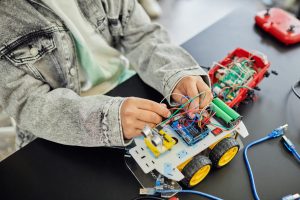Why Educators Should Prioritize Lifelong Learning Models
Lifelong learning is a concept that has gained significant traction in recent years, particularly in the realm of education. As modern society continues to evolve and progress at an unprecedented rate, the need for continuous learning and development has become more pronounced than ever before. With rapidly changing technologies, shifting societal norms, and new advancements in various fields, it has become imperative for individuals to keep up with the ever-evolving landscape of the world we live in. This emphasis on lifelong learning has significant implications for educators, who are tasked with preparing the future generations to become successful and well-adjusted members of this constantly changing world. In this article, we will delve into why educators should prioritize lifelong learning models and the benefits it can bring to both teachers and students.
The Changing Landscape of Education
Educators have a crucial role to play in bridging the gap between traditional education and the need for continuous learning. The traditional model of education, where individuals attain a certain level of education and then enter the workforce for a steady career, is becoming increasingly outdated. With the rise of automation and artificial intelligence, the jobs of tomorrow are highly unpredictable, and the skills needed to succeed are constantly evolving. Therefore, educators must equip their students with the necessary tools to become lifelong learners and adapt to the changing landscape of the workforce.
Preparing Students for the Future
The primary goal of education is to prepare students for the future. However, with the rapid pace of change, traditional education models are struggling to keep up. Educators must prioritize lifelong learning models to ensure that their students are adequately equipped to face the future. By instilling a sense of curiosity, adaptability, and a love for learning in their students, educators are laying the groundwork for their success in a constantly changing world.
Moreover, prioritizing lifelong learning models also encourages students to pursue their passions and interests, rather than just focusing on attaining good grades. This can lead to more self-driven and motivated individuals who are more likely to succeed in their chosen fields.
Facilitating Personal and Professional Growth for Educators
Prioritizing lifelong learning models doesn’t just benefit students; it can also be highly beneficial for educators. Teaching is a constantly evolving profession, and adopting a lifelong learning mindset can help teachers stay up-to-date with the latest research, teaching methods, and technologies. This not only improves the quality of their teaching but also helps them to stay motivated and passionate about their profession.
Moreover, lifelong learning models encourage collaboration and different perspectives, which can lead to personal and professional growth for educators. By engaging in continuous learning, educators can explore new ideas, gain new skills, and improve their teaching practices.
The Benefits of Lifelong Learning for Society
Aside from the individual benefits for educators and students, prioritizing lifelong learning models can have far-reaching effects on society as a whole. Lifelong learners are more likely to be active and engaged citizens, who are continuously seeking ways to contribute to their communities. By fostering a culture of lifelong learning, educators are not only preparing individuals to succeed in their personal and professional lives but also creating a better society.
The Role of Technology in Lifelong Learning
In today’s digital age, technology plays a significant role in lifelong learning. With a vast amount of information available at our fingertips, individuals can access resources, courses, and experts from all over the world. Educators can utilize technology to create engaging and interactive learning environments, where students can explore and delve deeper into their interests. Moreover, technology can also provide educators with opportunities for professional development and self-directed learning.
In Conclusion
In a world that is constantly changing, it is essential for educators to prioritize lifelong learning models. By equipping students with the skills, mindset, and tools needed to continue learning and growing throughout their lives, educators are preparing the next generation for success in a rapidly evolving world. Moreover, prioritizing lifelong learning can also have positive effects on educators themselves and society as a whole. It is time for educators to embrace and prioritize lifelong learning to prepare the future generations for what lies ahead.










